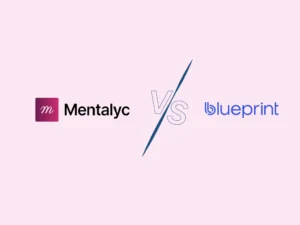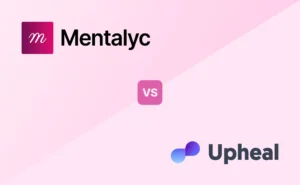CPT Code 90838 Description
CPT Code 90838 refers to individual psychotherapy sessions that last 60 minutes, with the patient physically present for the session. This code is essential to the billing and documentation process for mental health professionals, including psychologists, clinical social workers, psychiatrists, psychotherapists, and counselors – any mental health professional providing and paying for therapeutic services. This code allows these professionals to bill for a standard one-hour individual therapy session, which is a common duration for psychotherapy appointments.
The use of code 90838 enables healthcare providers to accurately describe the service provided to insurance companies for reimbursement purposes. It ensures the time and complexity of the service are appropriately accounted for within the billing process. This is particularly important in the context of mental health care, where the duration of the session impacts the therapeutic process and outcomes.
Sessions coded with 90838 include a wide range of therapeutic techniques and approaches, including but not limited to cognitive-behavioral therapy (CBT), psychodynamic therapy, interpersonal therapy, dialectical behavior therapy (DBT), and other evidence-based treatment modalities. This versatile code can be used regardless of the specific psychotherapeutic approach employed as long as the session meets the duration requirement and is conducted with the patient present.
Code Time
Code 90838 represents a 60-minute duration of psychotherapy with the patient actively participating in the session.

New! Transfer your notes to EHR with a single click. No more copy-pasting.
Reimbursement
The reimbursement for CPT code 90838 can vary due to several factors, including the insurance provider's policies, geographic location, and type of treatment offered. Mental health professionals must understand that reimbursement rates are not uniform and can significantly differ between insurance companies. This variability necessitates direct consultation with each insurance company or billing department to determine applicable reimbursement rates.
Geographic location plays a role in determining reimbursement rates, reflecting the cost of living and operating costs in different areas of the country. Clinicians practicing in urban areas may encounter reimbursement standards that differ from those in rural settings.
The specifics of the therapy session, such as the therapeutic techniques employed or case complexity, might also influence the reimbursement rate. Insurance companies may have different policies regarding the reimbursement for sessions involving more specialized therapeutic interventions.
To navigate these variations, providers are advised to proactively engage with insurance companies to obtain current information on reimbursement rates for CPT code 90838. Understanding the nuances of insurance policies and staying informed about potential rate changes can help ensure adequate compensation for the services provided. Aligning billing practices with insurance providers' specific requirements and policies can facilitate smoother processing of claims and reimbursements.
The key to managing the variability in reimbursement lies in maintaining open communication with insurance providers, being aware of geographic influences on reimbursement rates, and adhering to the specifics of insurance policies regarding psychotherapy. This approach aids in financial planning and management for mental health services and supports providing patient care within the financial frameworks of insurance coverage.
Modifiers
Depending on the specific situation and the policies of the payer or insurance company, modifiers may be required or recommended. Common modifiers used with this code include -52 (Reduced Services), -59 (Distinct Procedural Service), or other modifiers that indicate specific circumstances.
Documentation Requirements
Thorough and accurate documentation plays a vital role in the administration of mental health services, especially when billing under CPT code 90838. This code is designed explicitly for 60-minute psychotherapy sessions with patient and/or family involvement. Mental health providers must adhere to stringent documentation standards to leverage this billing code effectively and ensure a smooth reimbursement process from insurance companies.
The session date must be clearly recorded because it is a basic but essential piece of information that helps organize patient records chronologically and facilitates easy information retrieval.
The start and end times of the session confirm the session met the duration requirement, help manage the therapist's schedule, and ensure that each session is allotted the appropriate time. Precise timing is essential for billing purposes, as it substantiates the length of the session claimed.
The documentation should also describe the therapeutic interventions used during the session. This may include cognitive-behavioral therapy techniques, mindfulness exercises, psychodynamic approaches, or other therapeutic interventions. Detailing the tools and interventions provides context for the session's billing and can justify using the specific CPT codes.
The patient's diagnosis or presenting issues must be documented. This information aligns the therapy provided with the patient's specific needs and therapeutic goals. It's important to demonstrate the medical necessity of the therapy sessions, which is a critical factor in the reimbursement process.
Clinical notes should detail progress, topics covered, patient responses, and treatment plan adjustments. Progress notes are invaluable for ongoing clinical assessment and planning, and they offer a comprehensive view of the patient's treatment journey, help monitor progress over time, and can be critical during insurance company audits.
Clear, detailed, and accurate documentation is indispensable for clinical and billing purposes. It supports the therapeutic process by providing a structured overview of each session and ensures compliance with insurance requirements, facilitating the reimbursement process. For mental health providers using CPT code 90838, adhering to these documentation standards is essential for operational efficiency and financial viability.
Frequency
The application of CPT code 90838 is flexible, allowing it to cater to patients' nuanced and varied therapeutic needs. The decision to use this code and the frequency at which it is employed should be tailored to fit the unique treatment plan devised for each patient, guided by clinical judgment and an assessment of the patient's therapeutic needs. While there are no universally prescribed limits on the number of sessions a patient may receive under this code, the determining factors for its use should always be the patient's ongoing progress and the objectives set within the therapeutic framework.
Healthcare providers must recognize that CPT codes are subject to change. These modifications reflect shifts in healthcare practices, billing standards, and evolving patient care needs. Staying informed about the latest version of the CPT code manual is important for accurate billing and coding. Professionals should consult the most recent edition or seek advice from a medical coder or billing expert to ensure compliance with current standards.
The complexities of insurance policies and the variability in reimbursement practices require a proactive approach to billing. Healthcare providers should undertake due diligence by directly engaging with insurance companies or payers to confirm coverage specifics, including verification of reimbursement rates and understanding any policy issues that may affect the billing process. This step allows clinicians to navigate the financial aspects of patient care efficiently and can help avoid common pitfalls associated with insurance billing – ensuring the therapeutic needs of patients are met without undue financial complications.
Conclusion
CPT code 90838 is an important billing tool within the mental health field, offering a framework for mental health providers to secure reimbursement for 60-minute psychotherapy sessions, including time spent with patients and/or their families. This code’s use is a testament to the nuanced approach required in mental health treatment, allowing for flexibility in session frequency based on each patient's unique therapeutic needs and progress. The effective use of this code requires thorough documentation, an understanding of evolving CPT standards, and a proactive stance in navigating insurance policies and reimbursement rates. As mental health professionals strive to provide the best care for their patients, staying informed about CPT codes and maintaining open communication with insurance companies will ensure administrative aspects of care do not negatively impact the delivery of therapeutic services. The goal is to foster a healthcare environment that focuses on achieving the best possible patient outcomes, supported by a billing and coding system that facilitates rather than complicates patient care.
Why other mental health professionals love Mentalyc

“It takes me less than 5 minutes to complete notes … it’s a huge time saver, a huge stress reliever.”
Licensed Marriage and Family Therapist

“Having Mentalyc take away some of the work from me has allowed me to be more present when I’m in session with clients … it took a lot of pressure off.”
LPC

“By the end of the day, usually by the end of the session, I have my documentation done. I have a thorough, comprehensive note … It’s just saving me hours every week.”
CDCII

“It’s so quick and easy to do notes now … I used to stay late two hours to finish my notes. Now it’s a breeze.”
Licensed Professional Counselor






